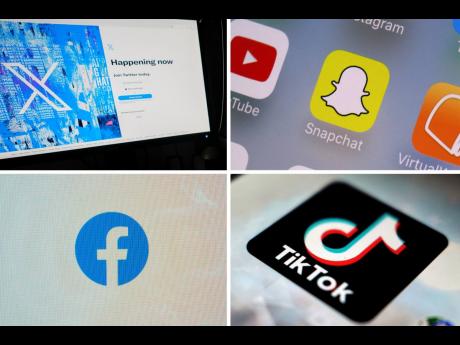Editorial | Vigilantes of social media
There are few things that Jamaica’s Government and Opposition agree on. One of them is that they are regularly victimised by social media falsehoods and negative tropes.
Which, to a significant extent, is true. But the issue is greater than the tit-for-tat between the parties. It has implications for national governance that is deserving of serious attention and the survival of a structured mass media landscape.
That the parties agree that social media can be a hostile environment doesn’t mean that either believes, or is likely to publicly admit, that the other is a victim of its assaults. Rather, the one will claim injury at the instigation, or implicit support of, the other.
Last week, for instance, claiming scurrilous attacks and race-baiting against People’s National Party (PNP) president, Mark Golding, Nekeisha Burchell, the party’s spokesperson on information and public communication, called on Prime Minister Andrew Holness to ensure that members of the governing Jamaica Labour Party adhered to “decency, honesty, and truth in public discourse”.
Several of the perceived infractions by senior members of the Jamaica Labour Party (JLP), about which Ms Burchell complained, were transmitted via social media.
“Prime Minister Holness has stated that his administration is prepared to face head-on those who spread lies and misinformation,” Ms Burchell said. “We call on him to address the falsehoods and misconduct within his own party first…”
Mr Holness insists, however, that his Government is victim of an unprecedented campaign of misinformation and disinformation.
“There is so much misinformation about what the government is doing or not doing, that the average person who … spend(s) an hour or so on social media, or is listening to the radio while driving, or may get a chance to scan the headlines, the information that you receive is largely incomplete,” the prime minister said in May. “Some of it, totally inaccurate, and a large section of the information, certainly in terms of where it comes from, is designed to mislead and create a false narrative.”
He added: “There has never been a time in our history where misinformation, false narratives and outright lies could be manufactured and disseminated at such an intense scale as today. Therefore, the average person is consuming information that is not necessarily accurate.”
CONCERNS DEEPEN
These concerns will undoubtedly deepen as campaigning for the general election, due next year, intensifies. Social media is likely to be a key battleground in the contest, and the technologies used manipulate information, including artificial intelligence (AI), will probably be in greater use.
In other words, voters, and the society in general, will be at greater risk of the deceptions, or even genuine mistakes, about which Mr Holness and Ms Burchell expressed their fears.
The larger question, however, is what the key players – the Government and governing JLP, the PNP, and others who are worried about this trend – intend to do about it.
One good thing is the recognition that a problem exists. Indeed, with respect to Mr Holness his most recent remarks reflect a welcomed, continued retreat from what, at one point, was perceived as an attempt by his administration to delegitimise traditional media as a credible source of public information.
Early in his administration Mr Holness and his then communications director, Robert Morgan (who later became his information minister and is now in charge of construction) were proponents of people bypassing traditional news organisations for social media – particularly those aligned with the Government and the ruling party – as their primary source of information.
“Not all things that are presented to you are facts and you should have alternatives beside what is presented to you as news,” Mr Holness remarked in late 2019.
He added: “You can go on social media, you can go on my social media pages. You have so much news opportunities to get informed.
“You don’t have to rely on one particular media for information, or commentary or opinion.”
At the time, the JLP, having rolled out a slick digital messaging for the 2016 election, which it won, enjoyed, by consensus, significant dominance in the social media sphere.
WILD WEST
Since then, not only has the gap closed, but Jamaica’s social `media space has emerged as a kind of Wild West, unregulated territory, with little or no invigilation or gatekeeping. In this environment, where the so-called citizen journalists hold sway without the checks and balances of formal media, truth and appropriate context are often sacrificed. Politicians claim to be the primary sufferers in this ecosystem.
The technologies that have allowed the rise in social media, and lowered barriers to citizens’ participation, can’t be reversed. And no one should wish them to be. Their value to society is immeasurable.
What is at stake is their best use. It is in the interest of governments and policymakers, including opposition parties, to facilitate an environment where citizens have access to truthful/factual information, delivered in its fullest context. Which is what traditional media strive continuously to do.
Trained journalists gather and present the facts, but not before their work is subjected to internal gatekeeping to filter out personal or other biases – unintended or not. Moreover, these institutions observe a clear demarcation between their presentation of opinion and their fact-based reporting. Mistakes, when they occur, are acknowledged and corrected.
In other words, traditional media are accountable – not only under the law, but by adherence to professional ethics and internal self-regulation.
This is a system that governments should have an interest in maintaining and actively supporting.
Policy consensus developed in these circumstances is more likely to be credible and lasting, and a stronger basis of social cohesion. Which is not the way of social media’s vigilante journalism.

